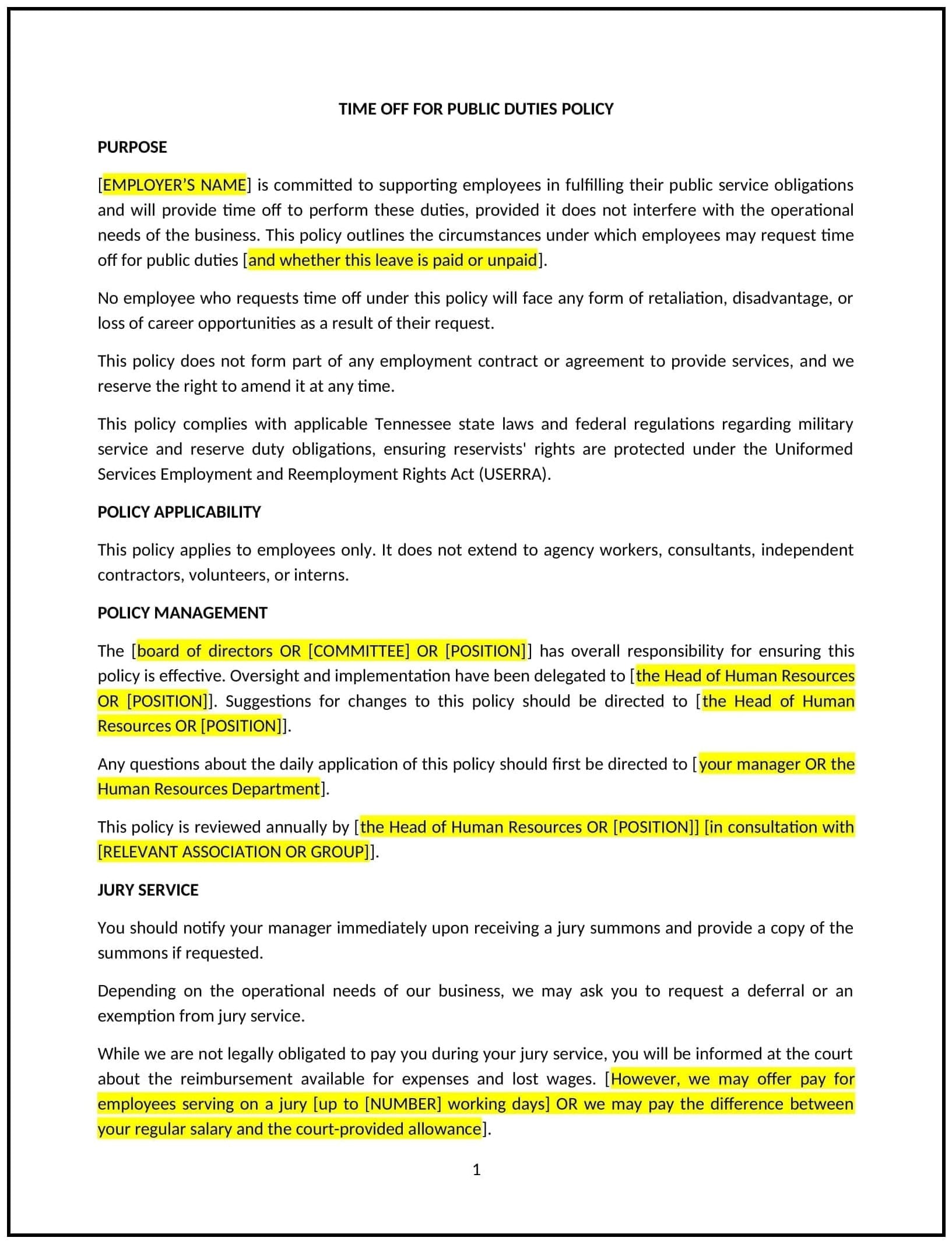Time off for public duties policy (Tennessee): Free template
Got contracts to review? While you're here for policies, let Cobrief make contract review effortless—start your free review now.

Customize this template for free
Time off for public duties policy (Tennessee)
This time off for public duties policy is designed to help Tennessee businesses establish guidelines for employees taking leave to fulfill public service obligations, such as jury duty, voting, or military service. It outlines procedures for requesting leave, job protection, and maintaining benefits during leave.
By adopting this policy, businesses can support employees’ civic responsibilities, comply with state and federal laws, and foster a patriotic workplace culture.
How to use this time off for public duties policy (Tennessee)
- Define public duties: Clarify what constitutes public duties, such as jury duty, voting, or military service.
- Set leave duration: Specify the maximum amount of leave provided for each type of public duty.
- Establish request procedures: Provide steps for employees to request leave, including required documentation and notice.
- Ensure job protection: Guarantee that employees will return to the same or an equivalent position after leave.
- Address benefits: Explain how benefits, such as health insurance, will be maintained during leave.
- Train managers: Educate supervisors on handling leave requests and maintaining workflow.
- Review and update: Assess the policy annually to ensure it aligns with evolving business needs and legal requirements.
Benefits of using this time off for public duties policy (Tennessee)
This policy offers several advantages for Tennessee businesses:
- Supports civic responsibility: Demonstrates a commitment to helping employees fulfill their public duties.
- Enhances employee trust: Shows employees that the business values their civic contributions.
- Ensures compliance: Helps businesses comply with state and federal laws regarding public duty leave.
- Reduces turnover: Builds loyalty by providing job security during public service obligations.
- Aligns with best practices: Encourages a structured approach to managing public duty leave.
Tips for using this time off for public duties policy (Tennessee)
- Communicate the policy: Share the policy with employees and include it in the employee handbook.
- Provide training: Educate managers on handling leave requests and maintaining workflow.
- Monitor compliance: Regularly review leave requests to ensure adherence to the policy.
- Address issues promptly: Take corrective action if leave requests are mishandled or denied improperly.
- Update regularly: Assess the policy annually to ensure it aligns with evolving business needs.